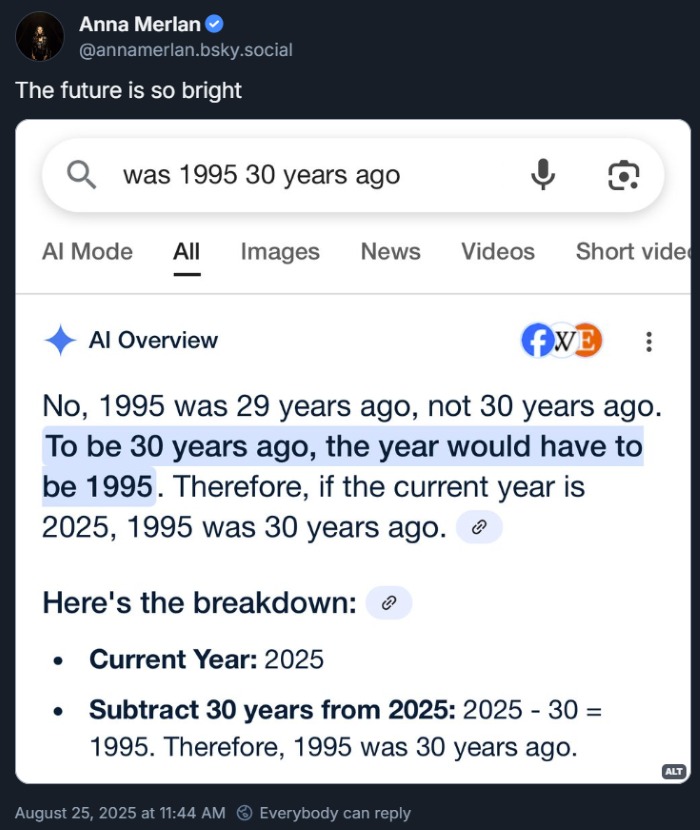A Melancholy Splinter Update Amidst Google’s AI Summaries Destroying the Web As We Know It
Illustration by Jim Cooke
This is not an easy thing to write, but I owe it to our readers to keep you in the loop about our attempt to rebuild this great site, and detail the obstacle that has been placed in our path. Non-Google traffic for Splinter has plateaued a bit the last few months after growing steadily month-over-month since our launch last March, and it could have been a manageable rough patch if our Google traffic had plateaued too, but like the rest of media, our Google traffic is utterly cratering. Their AI summaries are stealing traffic from every website on the internet, fundamentally threatening the Google-centric SEO business model that Google forced all websites to adopt through their illegal monopoly. Similarweb, a digital intelligence platform, found that worldwide search traffic has dropped by 15 percent in the last year. Neil Vogel, head of Dotdash Meredith, which owns outlets like People and Food & Wine told The Economist that their sites got over 60 percent of their traffic from Google three years ago, and that figure is now down to somewhere in the 30s. Despite the lies Google spews about their internet-killing business supposedly not doing that, Pew found that just 1 percent of people click the link in an AI summary. Ahrefs, an SEO site, said in April that AI Overviews reduced clicks by about 35 percent. This is the end of digital media as we know it, all in service of a computer program that couldn’t pass 2nd grade math.

Our Google traffic is down roughly 65 percent the last 90 days, and financially, it has led us to an untenable spot. We had to let our Deputy Editor Dave Levitan go last week, a real gut punch to this iteration of Splinter. Dave was integral to rebuilding this site into something a sizeable group of people enjoy, and we would not have succeeded to the degree we have without his daily expertise. He has long done great work covering the climate crisis and politicians’ mangling of science, which became especially important once Trump came into office and did everything he could to accelerate the climate crisis and destroy American science for good. Dave Levitan is forever a part of what Splinter is because he helped make it what it is today.
-

-

-

-

-

-

-

-

-

-

-

-

-

-

-

-

-

-

-

-

-

-

-

-

-

-

-

-

-

-

-

-

-

-

-

-

-

-

-

-

-

-

-

-

-

-

-

-

-

-

-

-

-

-

-

-

-

-

-

-

-

-

-

-

-

-

-

-

-

-

-

-

-

-

-

-

-

-

-

-

-

-

-

-

-

-

-

-

-

-

-

-

-

-

-

-

-

-

-

-

-

-

-

-

-

-

-

-












































































































